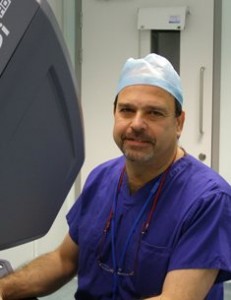Professor Mark Middleton, Professor John Bell, Dr Jenny Taylor and research colleagues from Oxford were interviewed on BBC Radio 4 on 17 February about new generations of cancer drugs. Discussions centred around advances in tumour mapping, patients' experiences, advances in genetic testing and ... READ MORE
News
Medical Innovation Event at Said Business School
The Oxford Centre for Entrepreneurship and Innovation are delighted to announce that registration for Medical Innovation 2010 on 17th and 18th March at the Saïd Business School is now open. Innovation is fast becoming the driving force for the achievement of high quality healthcare globally. ... READ MORE
Viral Hepatitis affects 1 in 12 people around the world – find out more
You are invited to attend a public lecture by leading experts Drs Jane Collier, Ellie Barnes and Prof Paul Klenerman. Would you like to learn about current treatments of hepatitis C infection, exciting drug developments that will reach the clinic soon and new vaccines being developed in Oxford. ... READ MORE
Oxford Ataxia Centre launch
Patients with neurological disorders affecting speech, balance and coordination will get greater access to specialist services and research. The new Oxford Ataxia Centre, launched at the John Radcliffe Hospital in December 2009, is one of only three specialist centres in the UK. It has been ... READ MORE
Patient Information day for people with inherited heart rhythm conditions
On 26 January patients have been invited in to find out more about inherited heart rhythm conditions (Long QT Syndrome and Brugada Syndrome). Other subjects included will cover: *The role of the Inherited Cardiac Conditions clinic *The management of LQTS and BS *Genetics and utility of ... READ MORE
New Oxford institute will be a centre of excellence for research into fertility & reproduction
The Institute for Reproductive Sciences – a new centre for cutting-edge research into causes of infertility and assisted reproduction techniques such as IVF – has opened on the Oxford Business Park in Cowley. The £3 million development brings together under one roof the University of Oxford’s ... READ MORE
Geoff Salt visits Biomedical Research Centre projects
Mr Geoffrey Salt was Director of Selling for Waitrose, responsible for 188 shops and 37,000 staff, and a member of the Waitrose Board. He joined Waitrose as a trainee after graduation and moved to the Head Office in 1988. He was an Area Manager and joined the Board in 1999. Mr Salt joined the Board ... READ MORE
Public Talk – vaccines Tuesday 26 January
Professor Andrew Pollard, Reader in Paediatric Infection and Immunity at the University of Oxford and Consultant in Charge of the Oxford Vaccine Group will present a talk on Tuesday, 26 January from 6-7pm (light refreshments at 5.30pm). Immunisation is one of the most cost-effective health ... READ MORE
Oxfordshire patients to benefit from robotic surgery
The University of Oxford and the Oxford Radcliffe Hospitals NHS Trust have acquired the latest technology in robotic surgery, the only one of its kind in the UK. The new £2 million instrument in the recently opened Oxford Cancer Centre will benefit patients undergoing keyhole surgery to remove ... READ MORE
Professor Sir John Bell appointed as Non-Executive Director
Professor Sir John Bell, FRS is Regius Professor of Medicine at Oxford University and is also President of the Academy of Medical Sciences. He founded the Wellcome Trust Centre for Human Genetics in Oxford which was the first to focus on the genetics of common diseases. Sir John Bell then went ... READ MORE

